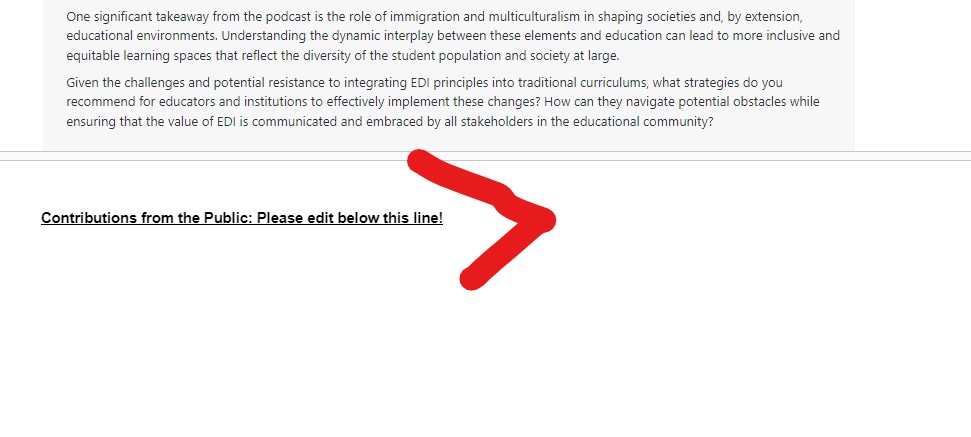For those joining along for the first time, here is a link to the lecture in question!
Essentially, in the video I say the following!
- #1: Thanks to Dr. Pamela Gurney for inviting me and Dr. Arif to speak to your class! We both enjoyed it very much!
- #2: Rather than trying to slap together individual responses to very very thoughtful questions, I felt it would be more beneficial… and an exercise in publicly-accessible learning, of sorts… to share the questions with Dr. Arif… as well as anyone else who feels like contributing… to craft a more thorough, comprehensive response… taking into account all the questions thus far…
- #3: I will continue to add questions from EDUC 5040 students… or anyone else… as they come in via the comments to the post
- #4: In one week I will update the Google doc accordingly, and then share a response from myself and, potentially, from Dr. Arif over the following weekend!
Here is a link to the editable EDUC 5040 Response doc! Please feel free to drop into the doc and contribute under the heading: “Contributions from the Public”! It is on the second page of the editable doc, under the screenshots of the questions so far!

Thanks again to Dr. Gurney and her students! We greatly appreciate these thoughtful questions!
‘Cause what is gone is gone in the end
We only got what we had when we began #ednontech

I appreciate Dr. Stranach for asking such important questions to Dr Arif and making the conversation so valuable.
Like many others, Dr. Arif has faced ups and downs in his career but he never gave up, which motivates me to overlook minor issues and focus on my goals.
One thing that I learned from this conversation is that the world is changing rapidly, and as educators, we have a role to play, just as Dr. Arif did by incorporating important topics into the syllabus to promote equity, diversity, and inclusion.
Question: If we focus on inclusivity, how we can include educational values in the lives of indigenous people who have been severely affected by reconciliation and residential schools?
Thanks for this, Priyanka! And apologies for the delayed response to your question!
how we can include educational values in the lives of indigenous people who have been severely affected by reconciliation and residential schools?
In terms of how you are putting this: I think you are speaking to engagement with Indigenous and First Nations individuals and communities…
My feeling is that Indigenization, decolonization, and approaches which recognize and explicitly value Indigenous experiences and ways of knowing and being… these benefit all learners… and are conducive to learning environments that are more equitable and inclusive.
Thanks again for watching the video and for the thoughtful question!
Dr. Matt Stranach
I found this video is enriching and captivating. Dr. Stranach and Dr. Arif’s discussion on equity, diversity, and inclusion is insightful and thought-provoking, offering valuable perspectives on these important topics. The podcast effectively navigates complex issues, providing practical strategies and examples for fostering equity and inclusivity in educational settings.
One thing that I have learned from this video is the significance of creating inclusive learning environments that acknowledge and celebrate diversity, ultimately enhancing educational outcomes for all students.
Given the evolving nature of diversity and inclusion efforts, how do Dr. Stranach and Dr. Arif recommend staying updated on best practices and adapting strategies to effectively meet the needs of diverse student populations?